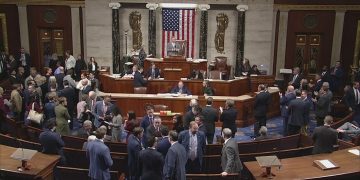As President Joe Biden prepares to leave office next week, he is staunchly defending his foreign policy achievements, asserting that his presidency has played a crucial role in restoring America’s global credibility.
With the prospect of Donald Trump returning to power, Biden emphasizes that the U.S. remains a vital partner on the world stage.
“Thanks to our administration, the United States is winning the worldwide competition.
Compared to four years ago, America is stronger, our alliances are stronger, and our adversaries are weaker,” Biden stated confidently.
A Shifting Landscape
Biden’s foreign policy legacy faces potential overshadowing from Trump’s impending return, particularly given Trump’s protectionist views.
The current president remarked on the failures of Russian President Vladimir Putin, stating, “Nearly three years later, Putin has failed to achieve any of his strategic objectives.
He has failed to subjugate Ukraine, break NATO’s unity, and make significant territorial gains.”
Biden also highlighted the growing alignment among authoritarian states such as Iran, Russia, China, and North Korea, framing it as a sign of weakness rather than strength.
“As the new administration begins, the U.S. is in a much stronger position than we were four years ago,” he asserted.
The Impending Transition
With President-elect Trump set to take office next week, his approach to foreign policy—particularly regarding the war in Ukraine—differs sharply from Biden’s.
Until Trump’s inauguration, uncertainty looms over the future direction of U.S. foreign policy in this critical area.
Biden’s administration has been characterized by a commitment to supporting Ukraine through military and humanitarian aid, while also working to strengthen alliances with NATO partners.
In contrast, Trump’s previous administration was marked by a more isolationist stance and a willingness to engage with authoritarian leaders.
The Stakes Ahead
As Biden reflects on his presidency and its impact on global relations, the upcoming transition raises important questions about the future of U.S. foreign policy.
Will Trump’s return signal a shift back toward protectionism and isolationism? Or will Biden’s legacy of strengthened alliances and international cooperation endure?
The world watches closely as these two contrasting visions for America’s role on the global stage prepare to collide once again.
As we approach this pivotal moment in U.S. history, the implications for international relations and security remain profound and uncertain.













